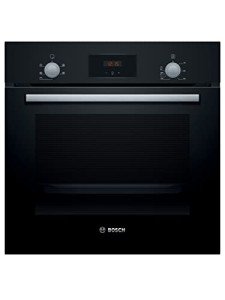The 10 Most Scariest Things About Built In Oven
페이지 정보

본문
The Ultimate Guide to Buying a Built-In Oven
In the world of contemporary cooking appliances, built-in ovens stand out for their seamless integration into kitchen cabinets, visual appeal, and advanced cooking innovations. They supply a wide variety of functions and a structured style, dealing with both culinary lovers and daily cooks. Nevertheless, choosing the right built-in oven can be difficult given the wide range of alternatives available in the market. This article works as a detailed guide, highlighting crucial considerations when purchasing a built in oven - simply click the up coming internet site,-in oven, popular features, and answers to frequently asked concerns (FAQs).
Why Choose a Built-In Oven?
Built-in ovens offer various advantages, consisting of:
- Space Efficiency: They are developed to fit into existing cabinets, enhancing kitchen space.
- Visual Appeal: With a variety of styles and surfaces, built-in ovens boost the total appearance of a kitchen.
- Advanced Features: Many come equipped with advanced technology, making cooking much easier and more exact.
- Customization: built in electric oven-in ovens can be set up at eye level or listed below counter height, using versatility based upon personal choice.
Key Considerations When Buying a Built-In Oven
Here are essential factors to consider before making a purchase:
1. Size and Dimensions
Before picking a built in range oven-in oven, it is important to measure the offered space. Requirement built-in ovens normally fall under 2 primary classifications:
| Oven Size | External Dimensions | Internal Capacity |
|---|---|---|
| Single | 24-30 inches broad | 3-5 cubic feet |
| Double | 30-36 inches wide | 5-10 cubic feet |
Guarantee that the selected model fits your cabinetry both in width and height.
2. Type of Oven
Built-in ovens can be found in different types, consisting of:
- Conventional Ovens: Uses heating elements above and listed below for standard baking and roasting.
- Convection Ovens: Employs a fan to distribute hot air, providing even cooking.
- Wall Ovens: Installed vertically at eye level for easier gain access to.
- Steam Ovens: Uses steam to cook food, maintaining nutrients and moisture.
3. Fuel Type
Built-in ovens are offered in different fuel types:
- integrated electric ovens: Often heats more equally, suitable for baking.
- Gas: Offers immediate temperature level control, excellent for roasting and broiling.
- Double Fuel: Combines the very best of both worlds with a gas cooktop and electric oven.
4. Functions and Technology
Modern built-in ovens included a myriad of features that enhance the cooking experience:
- Smart Technology: WiFi-enabled models enable users to manage the oven from another location through an app.
- Self-Cleaning: Reduces the effort needed to preserve a tidy oven.
- Postpone Start: Lets you program the integrated oven hob & extractor packages to start cooking at a fixed time.
- Numerous Cooking Modes: Options for baking, broiling, roasting, and more.
5. Brand and Price
Picking a respectable brand can make sure quality and reliability. Comparative rates amongst various brands can assistant in decision-making. Here's a quick overview of popular brands and their rate varieties:
| Brand | Avg. Rate Range | Notable Features |
|---|---|---|
| Bosch | ₤ 1,000 - ₤ 3,000 | Smooth design, trustworthy efficiency |
| Whirlpool | ₤ 800 - ₤ 2,500 | Easy to use controls |
| KitchenAid | ₤ 1,200 - ₤ 3,500 | Ingenious features, stylish styles |
| GE Appliances | ₤ 900 - ₤ 2,800 | Range of sizes and alternatives |
Installation Considerations
Setup of a built-in oven is an essential aspect that needs to not be neglected. It's highly advised to employ a professional when setting up a built-in oven. They can resolve electrical or gas line concerns and Built In Oven guarantee that the oven is fitted securely in the cabinets.
Maintenance Tips
Maintaining a built-in oven is necessary to lengthen its lifespan and performance.
- Clean Regularly: Wipe down surfaces and prevent letting spills end up being baked-on.
- Use Appropriate Cookware: This avoids damage to interior surface areas and boosts cooking performance.
- Inspect Seals: Inspect the door seals routinely for wear and tear to keep energy efficiency.
FAQs About Built-In Ovens
1. How do I know which size built-in oven to buy?
Procedure the area you have readily available and compare it to the oven measurements. Standard sizes usually range from 24 to 30 inches for single ovens.
2. Can I set up a built-in oven myself?
While it's possible to set up a built-in oven without expert assistance, working with a knowledgeable service technician is suggested for security, particularly with gas or electrical connections.
3. What is the average lifespan of a built-in oven?
Generally, built-in ovens last about 10-15 years with appropriate maintenance.
4. Are built-in ovens energy efficient?
Energy performance varies by design. Try to find energy ratings or environmentally friendly functions when picking an oven.

5. Do built-in ovens need special cabinets?
Yes, they are designed to fit particular cabinets sizes. Ensure the cabinetry is built to accommodate the desired oven's dimensions.
A built-in oven is an outstanding investment that can substantially boost your cooking experience and kitchen visual. With various sizes, types, and advanced functions, comprehending your requirements and preferences is important for making the best choice. By thinking about dimensions, fuel type, and brand credibility, you can with confidence choose a built-in oven tailored to your way of life. Eventually, a well-chosen built-in oven will not only raise your culinary abilities however likewise act as a sensational focal point in your kitchen for many years to come.
- 이전글9 Signs That You're A Mopping Robot Expert 25.05.21
- 다음글"Ask Me Anything," 10 Responses To Your Questions About Concerta ADHD Medication 25.05.21
댓글목록
등록된 댓글이 없습니다.

